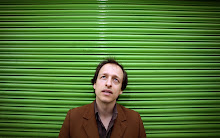I have been reading Eminent Victorians by Lytton Strachey. Its first subject is Cardinal Manning, the archdeacon who converted to the Roman Catholic Church in the mid-nineteenth century, and went on to become Archbishop of Westminster.
Irrelevant to the modern age, you might say. And it's true, I did not pick up the book looking for insights into politics. But, idly reading away I was, and suddenly I could think only of the Chilcot Enquiry and Tony Blair's appearance there last week.
I would now contend that if you want to find insight into Blair's sheer chutzpah in talking about 'calculus of risk' and other such nonsense, you should look no farther than the Strachey text on Manning.
They have a few things in common. They both converted to become Catholics; they were both ruthlessly self-serving and blithely ignored facts if they did not serve them.
Here is a passage about Manning's conversion:
"The Church of England is a very commodious institution; she is very anxious to please; but, somehow or other, she has never been able to supply a happy home to superstitious egotists."
One can see, from this sentence, how Blair is a natural Catholic and bedfellow of Bush, or Clinton, or whomever happens to be President of the US.
The opening paragraph also lays bare Blair's approach to the Chilcot enquiry:
"Undoubtedly, what is most striking in the history of Manning's (or Blair's) career is the persistent strength of his innate characteristics. Through all the changes of his fortunes the powerful spirit of the man worked on undismayed. It was as if the Fates had laid a wager they would daunt him; and in the end they lost their bet."
Looking at this masterly text, it is obvious how Blair could look at the 45-minute claim, realise it referred not to long-range strategic weapons, but battlefield munitions, and then say: "I didn't focus on it a lot at the time."
Tuesday, 2 February 2010
Subscribe to:
Comments (Atom)
